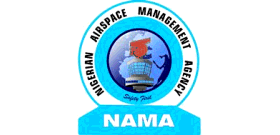 NAMA Calls for Funding Reform to Safeguard Nigeria’s Airspace Modernisation
NAMA Calls for Funding Reform to Safeguard Nigeria’s Airspace Modernisation
The Managing Director of the Nigerian Airspace Management Agency (NAMA), Engr. Farouk Umar, has issued a strong appeal for a new funding approach, warning that ongoing deductions of 30 to 50 percent from the agency’s internally generated revenue are undermining its ability to modernise and maintain essential air navigation infrastructure across Nigeria. The call was made during the 54th Annual General Meeting of the Nigerian Air Traffic Controllers’ Association (NATCA) in Abuja, where aviation professionals gathered to assess the future of Nigeria’s airspace management.
Engr. Umar highlighted the profound impact these mandatory deductions have on NAMA’s operations. While the agency has embarked on a significant infrastructure renewal drive—including upgrading control towers, procuring advanced communications, and installing modern navigation systems—the financial constraints imposed by the government’s revenue policy are threatening the completion and sustainability of these crucial projects.
“We understand the fiscal pressures on government, but these deductions severely limit our ability to undertake the comprehensive projects our airspace requires,” Umar explained. The agency’s vision for a safer, more efficient national airspace is at risk, as vital investments in technology and infrastructure face indefinite delays.
At the heart of the issue is NAMA’s request for a waiver that would allow it to retain and reinvest all internally generated funds. According to Umar, such a move would have a transformative effect, accelerating the agency’s ability to deliver next-generation airspace solutions and meet international safety standards. “Reinvesting every Naira we earn into infrastructure, technology, and human capital is not just a request for NAMA, it is an investment in national aviation safety,” he asserted.
Despite these funding challenges, NAMA has made significant progress, especially in human capital development. Engr. Umar declared 2025 as the agency’s “Year of Capacity Building,” underscoring an unprecedented commitment to training and professional development. More than 200 senior managers—including 110 air traffic controllers—have received international training, while nearly 90 percent of operational and technical staff have participated in domestic capacity-building initiatives. This investment in personnel is seen as a cornerstone for both operational excellence and the retention of international recognition for Nigeria’s air traffic controllers.
NAMA is also preparing to implement a new Conditions of Service agreement, pending approval from the National Salaries and Wages Commission. This initiative aims to enhance staff welfare, ensuring motivation and stability within the agency’s workforce—a critical factor in sustaining safe and efficient air traffic management.
As Nigeria’s aviation market grows, the need for reliable, well-funded airspace management becomes even more urgent. The country’s strategic position as a West African hub means that any gaps in air navigation infrastructure or personnel capacity have regional implications, impacting carriers, passengers, and the broader travel economy. The aviation industry’s shift toward more sophisticated, technology-driven operations demands that agencies like NAMA are equipped with both the financial and human resources to adapt rapidly.
Engr. Umar’s message to policymakers is clear: sustained investment in national airspace is not merely a budget line—it is the foundation of aviation safety and a prerequisite for the continued growth of Nigeria’s travel and tourism sector. He commended NATCA members for their professionalism and for earning international recognition, reiterating that the momentum gained through recent reforms must not be lost due to funding shortfalls.
For Africa’s travel professionals, the developments at NAMA serve as a powerful reminder of the direct link between regulatory funding, infrastructure performance, and business sustainability. As governments across the continent seek to upgrade their aviation systems, the Nigerian experience highlights the importance of financial autonomy and targeted reinvestment in ensuring that airspace remains safe, responsive, and ready for the challenges of tomorrow.
The future of Nigeria’s airspace—and by extension, the competitiveness of its aviation sector—may well hinge on how quickly and effectively funding bottlenecks are addressed. For now, the industry’s eyes remain on Abuja, where decisions about NAMA’s financial structure could set a precedent for airspace management reforms across Sub-Saharan Africa.
